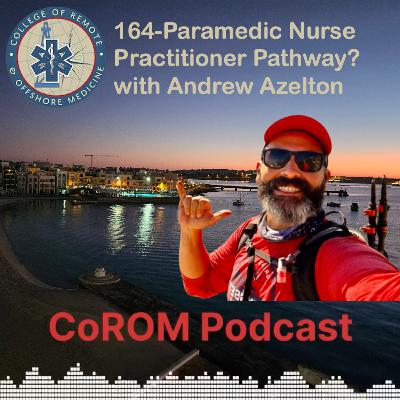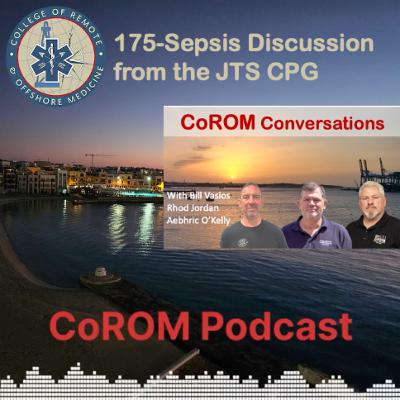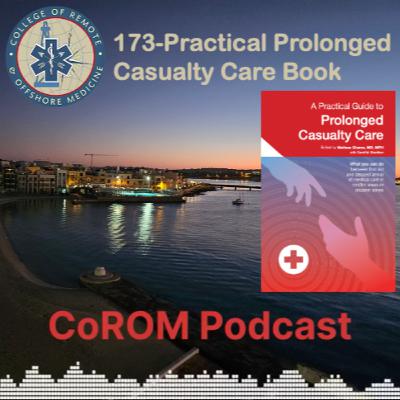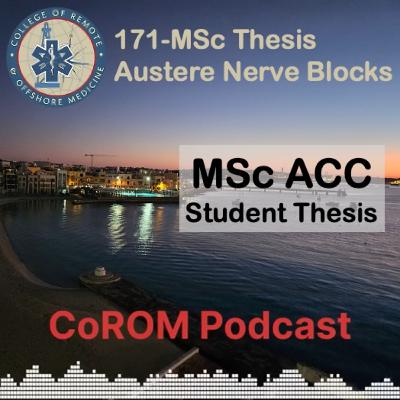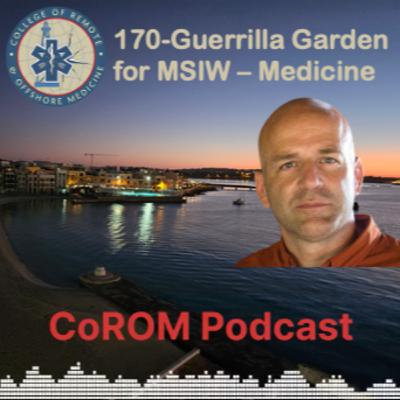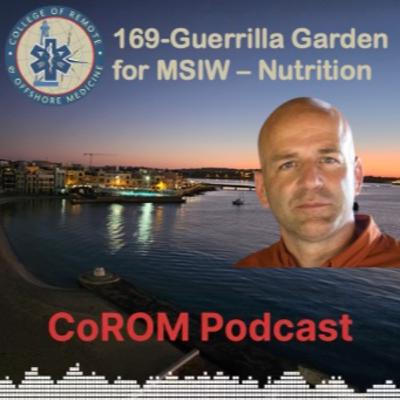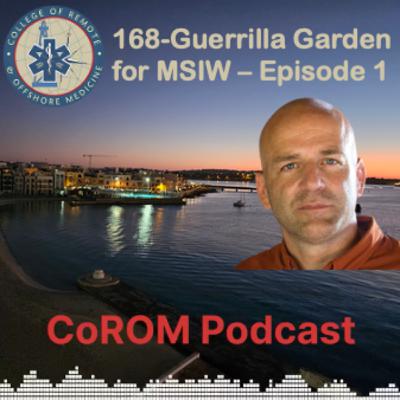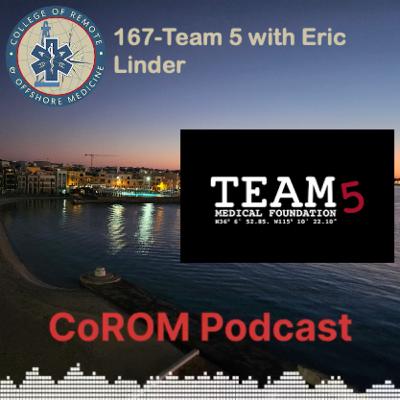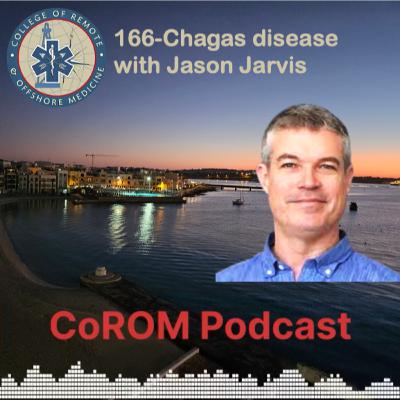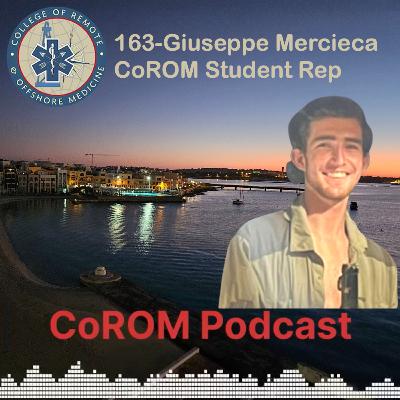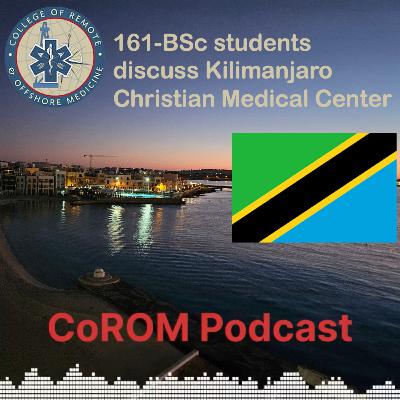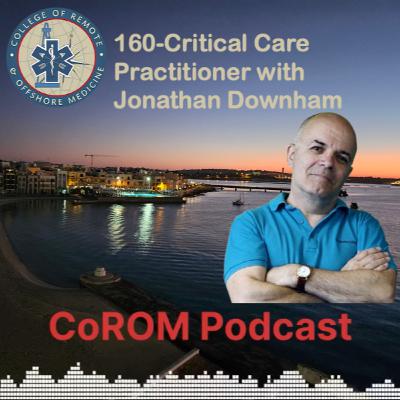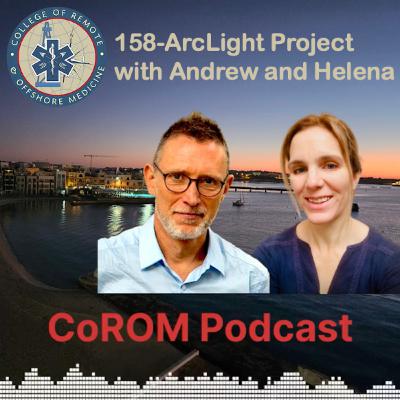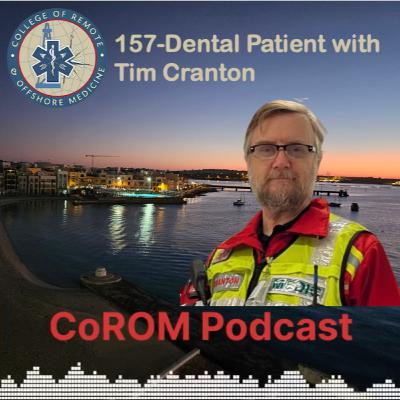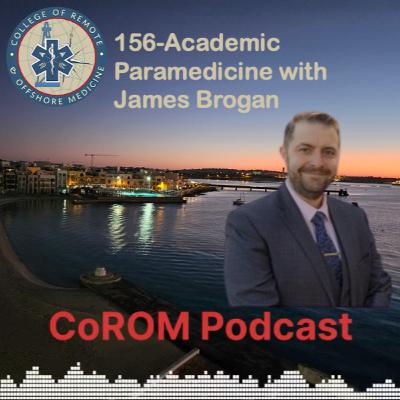164-Paramedic Nurse Practitioner Pathway? with Andrew Azelton
Description
This week, Aebhric talks with Andrew Azelton, a CoROM MSc student, discussing his journey through the EMS field and the challenges faced in pursuing advanced practice as a paramedic. He highlights the lack of master's programs in the U.S. that focus on clinical experience, contrasting it with the more developed systems in Europe. The discussion explores state regulations, the variability of care across different regions, and potential pathways for paramedics to advance their roles within the healthcare system.
They explore the concept of an advanced practice paramedic, comparing EMS systems in the U.S. and Europe, discussing funding challenges, and the potential for creating new pathways for paramedics. It emphasises the need for advanced education and training, as well as the importance of funding in implementing changes in the EMS system. The discussion also touches on the future of paramedic education and offers advice for new medics entering austere medicine.
Takeaways
Andrew Aselton is pursuing a master's program in EMS.
The U.S. lacks master's programs focused on clinical experience for paramedics.
The EMS system in the U.S. is fractured and varies by state.
In Europe, paramedics have their own licenses and greater autonomy.
State regulations have a significant impact on the practice of paramedics in the U.S.
Advanced practice paramedics are emerging in some states, like Kentucky.
There is a need for a structured pathway for advanced practice paramedics in the U.S.
The conversation highlights the differences in EMS practices between the U.S. and Europe.
Waving a magic wand could lead to significant changes in paramedic education.
The discussion raises questions about the future of paramedics in advanced roles.
An advanced practice paramedic should have field experience and a graduate degree.
Hands-on learning and clinical attachments are crucial for paramedic education.
The EMS system in the U.S. varies significantly by state and funding.
Funding challenges hinder the implementation of advanced practice paramedics in the U.S.
EMS is often not considered an essential service, which can impact funding and resources.
Data shows that treatment release can save money and reduce hospital admissions.
A national support system is needed for advanced practice paramedics.
Creating a nurse practitioner pathway for paramedics could be beneficial.
Funding disparities exist between tax-based and for-profit EMS systems.
New medical professionals should seek appropriate training and be prepared for the challenges of working in austere environments.
Chapters
00:00 Introduction to Andrew Aselton and His Journey
02:37 Challenges and Growth in the Master's Program
05:10 The State of EMS Education in the U.S.
07:47 Advanced Practice Paramedics: A Path Forward
10:41 The Future of EMS and Advanced Practice Opportunities
12:00 Designing the Advanced Practice Paramedic
14:52 Comparing EMS Systems: U.S. vs Europe
18:00 Funding Challenges in EMS
21:50 The Role of Advanced Practice Providers
24:08 Creating a New Pathway for Paramedics
29:59 The Future of Paramedic Education
32:59 Advice for New Medics in Austere Medicine

